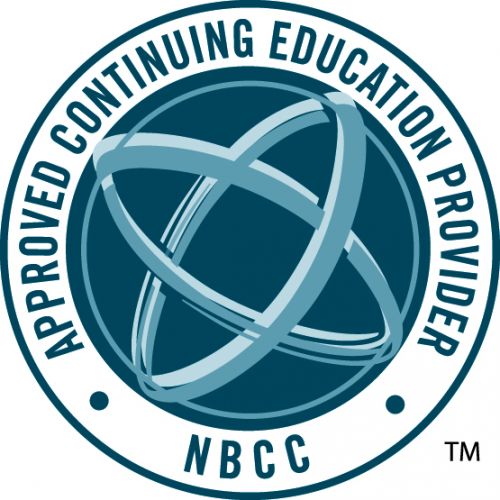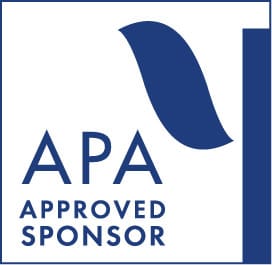- ADHD
- Adults
- Alternative Medicine
- Alzheimers & Aging
- Animal-Assisted Therapy
- Autism
- Behavior Therapy
- Child & Adolescent
- Closeout
- Communication
- Couples-Family-Parenting
- Cultural Diversity
- Depression & Anxiety
- Domestic Violence
- Ethics & Risk Management
- Gender Identity
- HIV-AIDS
- Human Trafficking
- Laws & Rules
- Medical Errors
- Mindfulness & Yoga
- Miscellaneous
- National Psychologist
- Nutrition & Fitness
- Pain Management
- Psychotherapy
- Sexuality
- Substance Abuse
- Suicide
- Supervision
- Trauma & PTSD
School Refusal Behavior: Children Who Can’t or Won’t Go to School
George B. Haarman, PsyD, LMFT
$49.00 Original price was: $49.00.$24.50Current price is: $24.50.
 Intermediate
Intermediate
 Online
Online
Course Abstract
School Refusal Behavior: Children Who Can’t or Won’t Go to School is a 4-hour online continuing education (CE) course that breaks down the distinction between truancy and school refusal and examines a number of psychological disorders that may be causing – or comorbid with – school refusal. School refusal is a problem that is stressful for children, for their families, and for school personnel. Failing to attend school has significant long and short-term effects on children’s social, emotional, and educational development. School refusal is often the result of, or associated with, comorbid disorders such as anxiety or depression. Careful assessment, treatment planning, interventions, and management of school refusal are critical to attainment of the goal of a successful return to school as quickly as possible. Interventions may include educational support, cognitive therapy, behavior modification, parent/teacher interventions, and pharmacotherapy.
This course will break down the distinction between truancy and school refusal and will examine a number of psychological disorders that may be causing – or comorbid with – school refusal, including separation anxiety, generalized anxiety, social phobia, panic attacks, major depression, dysthymia, ADHD, and oppositional defiant disorder. Completing the course will assist you in performing a functional analysis of school refusal to determine the motivation and particular reinforcement systems that support the behavior. Specific intervention strategies will be reviewed, with a focus on tailoring and adapting standard approaches to specific situations. Participants will be given the opportunity to review several case studies and develop a sample intervention plan for cases of school refusal.
Closeout Course #40-29 | 2011 | 49 pages | 30 posttest questions
Learning Objectives
- Identify the unique behavioral and clinical features of children who refuse to attend school
- Name the four types of school refusers
- Identify the functional purposes served by school refusal
- List comorbid disorders that frequently underlie school refusal
- Describe individual, family, and pharmacological treatment approaches to school refusal
- Develop individualized treatment plans for the various types of school refusal
Course Directions
This online course provides instant access to the course materials (PDF download) and CE test. The course is text-based (reading) and the CE test is open-book (you can print the test to mark your answers on it while reading the course document).
Successful completion of this course involves passing an online test (80% required, 3 chances to take) and we ask that you also complete a brief course evaluation.
About the Author(s)
George B. Haarman, PsyD, LMFT : Find out More
George B. Haarman, PsyD, LMFT, is a Licensed Clinical Psychologist and a Licensed Marriage and Family Therapist currently in private practice. He received his doctorate in clinical psychology from Spalding University and is a member of the American Psychological Association. Dr. Haarman has been an instructor at Jefferson Community College, Bellarmine University, and Spalding University. He has presented seminars regionally and nationally on psychopathology, depression, and emotional disorders in children and adolescents. Dr. Haarman serves as a consultant to several school systems regarding the assessment of children. His prior experience includes working with youth detention centers, juvenile group homes, child protective services, and juvenile probation.
Disclosure
:
Financial: No relevant financial relationships exist.
Nonfinancial: No relevant nonfinancial relationships exist.
CE Information
Counseling

Professional Development Resources (PDR) has been approved by the National Board for Certified Counselors (NBCC) as an Approved Continuing Education Provider, ACEP No. 5590. Programs that do not qualify for NBCC credit are clearly identified. PDR is solely responsible for all aspects of the programs.
Professional Development Resources is CE Broker compliant (#50-1635 - all courses are reported within two business days of completion). Professional Development Resources, Inc. is recognized by the New York State Education Department’s State Board for Mental Health Practitioners as an approved provider of continuing education for licensed mental health counselors (#MHC-0135 - Note: New York counselors will receive 4 continuing education credits for completing this self-study course).
Marriage and Family Therapy

Professional Development Resources is approved by the American Psychological Association (APA) to sponsor continuing education for psychologists. Professional Development Resources maintains responsibility for this program and its content. Professional Development Resources is also approved by the National Board of Certified Counselors (NBCC ACEP #5590); the Association of Social Work Boards (ASWB #1046, ACE Program); the New York State Education Department's State Board for Mental Health Practitioners as an approved provider of continuing education for licensed marriage and family therapists (#MFT-0100 - Note: New York MFTs will receive 4 continuing education credit(s) for completing this self-study course); the Texas Board of Examiners of Marriage and Family Therapists (#114); and is CE Broker compliant (#50-1635 - all courses are reported within two business days of completion).
Occupational Therapy

Professional Development Resources is an AOTA Approved Provider of professional development. Course provider ID# 3159. This distance learning-independent course is offered at 0.4 CEUs, intermediate level, OT Service Delivery]. The assignment of AOTA CEUs does not imply endorsement of specific course content, products, or clinical procedures by AOTA.
Professional Development Resources is CE Broker compliant (#50-1635 - all courses are reported within two business days of completion).
Psychology

Professional Development Resources is approved by the American Psychological Association (APA) to sponsor continuing education for psychologists. Professional Development Resources maintains responsibility for this program and its content.
Professional Development Resources is CE Broker compliant (#50-1635 - all courses are reported within two business days of completion). Professional Development Resources, Inc. is recognized by the New York State Education Department’s State Board for Psychology as an approved provider of continuing education for licensed psychologists (#PSY-0145).
School Psychology

Professional Development Resources is approved by the American Psychological Association (APA) to sponsor continuing education for psychologists. Professional Development Resources maintains responsibility for this program and its content.
Professional Development Resources is CE Broker compliant (#50-1635 - all courses are reported within two business days of completion). Professional Development Resources, Inc. is recognized by the New York State Education Department’s State Board for Psychology as an approved provider of continuing education for licensed psychologists (#PSY-0145).
Social Work

Professional Development Resources, #1046, is approved as an ACE provider to offer social work continuing education by the Association of Social Work Boards (ASWB) Approved Continuing Education (ACE) program. Regulatory boards are the final authority on courses accepted for continuing education credit. ACE provider approval period: 6/12/2022 - 6/12/2025. Social workers completing this course receive 4 clinical continuing education credits.
Professional Development Resources is CE Broker compliant (#50-1635 - all courses are reported within two business days of completion). Professional Development Resources, Inc. is recognized by the New York State Education Department's State Board for Social Work as an approved provider of continuing education for licensed social workers (#SW-0664 - Note: New York social workers will receive 4 continuing education credit(s) for completing this self-study course). Professional Development Resources is also approved by the Texas State Board of Social Worker Examiners (#5678).
Teaching
Professional Development Resources is approved by the American Psychological Association (APA) to sponsor continuing education for psychologists. Professional Development Resources maintains responsibility for all programs and content. Professional Development Resources is also approved by the National Board of Certified Counselors (NBCC ACEP #5590); the Association of Social Work Boards (ASWB Provider #1046, ACE Program); the Continuing Education Board of the American Speech-Language-Hearing Association (ASHA Provider #AAUM); the American Occupational Therapy Association (AOTA Provider #3159); the Commission on Dietetic Registration (CDR Prior Approval Program); the New York State Education Department’s State Board for Psychology as an approved provider of continuing education for licensed psychologists (#PSY-0145), State Board for Mental Health Practitioners as an approved provider of continuing education for licensed mental health counselors (#MHC-0135) and marriage and family therapists (#MFT-0100), and the State Board for Social Workers as an approved provider of continuing education for licensed social workers (#SW-0664); the Texas Board of Examiners of Marriage and Family Therapists (#114) and State Board of Social Worker Examiners (#5678); and is CE Broker compliant (#50-1635 - all courses are reported within two business days of completion).
Customer Testimonials
Great course. It will be very helpful in my school counseling!
This is one of the most practical, applicable courses I have taken so far with Professional Development Resources. Thank you.
Great course for practicing school psychologists.
This was, by far, the best continuing ed. course I have ever taken online. Bravo to Dr. Haarman for such an extensive overview of school refusal and strategies that have proven to be successful in treatment. Thoroughly enjoyed it!
I really enjoyed this course as both a professional and a parent. I definitely recommend it to others.
More Testimonials
I am unexpectedly thrilled at the depth this little course delved into the issue of school refusal behavior.
A thorough look at school refusal issues with relevant implications for intervention strategies.
One of the best on line courses I have taken.
The materials were very well organized, clear and a lot of useful/practical ideas and suggestions.
It was very helpful to read different ways to help school refusers. Thank you.
I like doing these on my own time due to me schedule. I've always been pleased with the information.
Very relevant course. Love the ease/clarity of material.
This was a very relevant course to the work I do. Very helpful.
There were more test questions, some of them fairly challenging which is unusual for an online course, but it was very informative.
It's a confusing area with students who have few common features.
This course packed a lot of useful information into a compact package.
As a teacher (grades 2-10) and an LMHC, this course was extremely helpful. The information was useful and definitely applicable.
I work in a school system, so this was a very helpful course. School refusal is encountered quite often, with parents usually requesting homebound instruction to address the problem.
Great course! Clear, complete, and useful.
Very informative. I'm excited to share this info with my colleagues.
Excellent course, and very relevant to the work I do as a special education administrator.
I found this presentation very interesting. I have only had one student with school refusal problems, it took an entire semester to ease him back into the educational environment. This information reinforced the fact that as a school community we were able to get this student back to school in a nurturing and caring manner.
The course gave me useful tools to carry out my work.
This course had such a nice balance of research/statistics, case studies/examples, and core information. This format was wonderful, I wish more were like this. I found the case studies/examples great ways to illustrate the information discussed in a pertinent and applicable way.
I thought the materials were excellent and I learned a lot
Challenging and informative with the most up to date information on DSM?5.
Well done course. Should be useful information with my work.
I like the test because it also leaves me with a quick reference to go back to when I need to reinforce my learning.
Thanks for course! A lot of great information!
I would like to know more about the most recent research as I think most of what was quoted was several years old. Otherwise, it was thoroughly helpful, as I work in a school setting.
Just the information I needed. Thank you!
I really enjoyed this course. It's content was rich and the writing and explanations were clear.
Very relevant to my work!
I found the material very useful, something that I can use in the school I work with. I found the description of the four functions of school very helpful and something to think about when working with students. Was easy to read and understand.
An excellent course and experience. Thank you
Wish I had taken this course years ago when I was doing attendance mediation.
Excellent...very thorough and practical.
Excellent information ...greatly appreciate clarity on treatment plans for school refusals and behaviors to discourage by parents.
Very thorough presentation regarding a difficult issue.
Very readable, good scenarios, and a clear presentation.
Thank you for this information I feel it is a valuable resource to helping our HS and MS population of students refusing to attend school and I will do my best to help the parents and administrators to understand the different types of students that are refusing to attend school.
I recommend adding information to share directly with parents.
This is a particular area of interest for me and I appreciated the information. There were a couple of area that weren't clear or I misunderstood, so will review.
Loved the information I gathered from this course!
One of the better Continuing Education courses for someone providing psychological services in schools. Great reference tool to determine reasons and interventions for truancy/school refusal.
Great course for school psychologists dealing with school refusal.
Great course in explaining school refusal behavior. To the point, gave examples, and clear explanation.
As a OT and a mom who homeschools, this information was very interesting since we are not in the schools.
Comprehensive. Easy to follow. Well written.
Very helpful now that I am working in a school. I now have some ideas about how to help students in this area.
A great overview along with a wide range of appropriate interventions!
This was one of the best CE courses I have done lately.
Excellent course that every school counselor could learn from.
Very good information and presentation of material.
Great presentation for parents and therapists.
This was a very informative course and provided great detail and specifics regarding interventions and background knowledge. Very relevant for my practice as a school social worker. Thank you!
This information was helpful in that I understand different plans that are most/least effective for different types of school refusal. One size fits all approach definitely does not work here, so I found that to be most helpful when creating more individualized plans.
After the pandemic we are seeing an increase in school refusal behavior. This is helpful in understanding how to go about helping the students and the parents.
I am a retired LPC, but this course helped me understand my grandson's anxiety in his kindergarten class this past year!!
This course well excellent. The material was presented clearly and I learned so much. This was my first course with PDR and I will definitely do another course.
One of the best CEU courses that I have completed to date from PDR.
Will absolutely use these protocols with students!
I will be utilizing this information in my middle school. It was very helpful!
One of the best CEU courses that I have completed to date from PDR.
As I work with few children or adolescents much of this was new to me. However I do see one adolescent with this issue, so it gave me slot of new insights and approaches to pursue.
While much of this information was a review for me, I thought this reading added some new information which will be helpful in therapy. I thought this was very well laid out.
Lately, I have worked with students with anxiety who have poor attendance. I think some of information can help with making recommendations.
This course is fabulously informative and lays out a framework for understanding school refusers and specific approaches for intervention.
As a Licensed Counselor and Board Certified Behavior Analyst, I loved the blend of CBT & ABA in this course! This course helped me develop a starting point for students who refuse to attend school.




